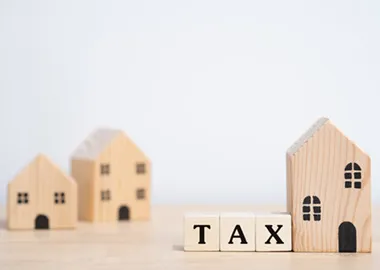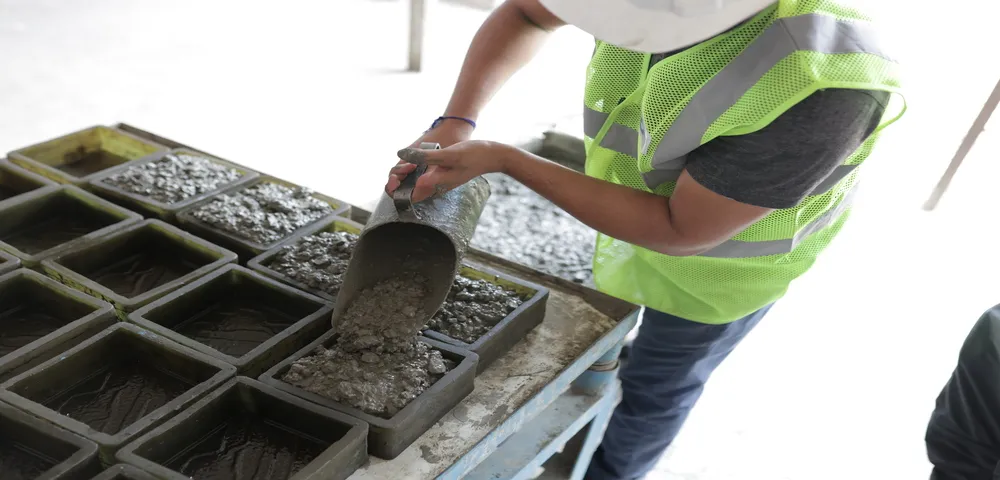- Our Story
- Our Impact
-
Our Projects
Residential
Commercial
- Careers
Decoding Duties: A Comprehensive Guide to Property Owners & Real Estate Developers
By Lodha
January 13, 2024Property ownership, development, and construction form the bedrock of the real estate industry, encompassing a complex interplay of roles and responsibilities. These dynamic processes demand a meticulous approach and a deep understanding of various facets of the industry. Each stakeholder, from the real estate owner to the property developer and builder, brings a unique set of skills and expertise to the table, contributing to the realisation of a successful project. It is within this intricate web of collaboration that the seeds of innovation and progress are sown.
In this article, we shall embark on an insightful journey, exploring the nuanced duties and commitments that define the roles of property ownership, development and construction. Through a comprehensive understanding of these roles, we aim to shed light on the multifaceted efforts required to bring real estate visions to life, ensuring not only project success but also the utmost satisfaction of all stakeholders involved.
Understanding Responsibilities: Property Owner
Property ownership is a substantial responsibility in the real estate landscape. At its core, it involves judiciously managing the property to ensure its enduring value and seamless functionality. This encompasses a range of critical tasks:
a) Maintenance and Upkeep: Diligent oversight, encompassing routine inspections, repairs and general upkeep, is crucial to preserving the property's value.
b) Compliance with Legal Requirements: Ensuring legal compliance is vital for property owners. They typically establish their ownership through registered deeds or documents. These registered instruments hold evidentiary value under the Registration Act of 1908, and the Transfer of Property Act of 1882. Additionally, adherence to local laws and regulations, covering property tax obligations, permits and safety standards, is of paramount importance.
c) Tenant and Neighbour Relations: Fostering positive relationships with tenants and neighbours is important. This involves addressing tenant concerns promptly and upholding lease agreements, contributing to a harmonious tenant-landlord dynamic.
d) Risk Management: Thorough risk assessments, hazard identification and the implementation of security measures are vital aspects of property ownership.
e) Financial Management: Effective handling of financial planning, including setting rental rates, managing expenses and ensuring timely payments, is pivotal.
f) Duty of Care: Ensuring the safety of visitors and residents through proper maintenance and preventive measures is a fundamental responsibility.
g) Recurring Expenses: Owners are accountable for utility bills, amenities and contributions to shared amenities in cooperative societies.
h) Home Loan Obligations: Timely repayment of monthly EMIs is crucial to honouring loan agreements and preventing potential property reclamation by the lender.
Unveiling Responsibilities: Property Developers and Real Estate Builders
Property developers in Mumbai and property builders play a crucial role in turning visions into concrete reality. By adhering to these responsibilities, both these entities contribute to the growth and integrity of the real estate industry in India. Their responsibilities encompass various stages, including:
a) CREDAI Membership: Builders are encouraged to become members of the Confederation of Real Estate Developers' Associations of India (CREDAI). CREDAI promotes advancements in construction techniques and property development. The emphasis is placed on integrity and transparency in the real estate sector. The organisation advocates for industry issues before government bodies.
b) Licencing: Obtaining approval from municipal departments is a fundamental duty for builders in India before initiating any infrastructural development.
c) RERA Registration: Responsible builders register all their projects with the Real Estate (Regulation and Development) Act (RERA). The submission of project documents must adhere to RERA guidelines. Project details must be provided on the RERA website for public viewing.
d) Local Government Clearances: Builders must secure all legal and statutory clearances from local authorities before commencing a project. This includes submitting project proposals and obtaining clearances for elements like lifts, water supply, fire safety and electricity. Excavation clearances and No Objection Certificates (NOC) from civic departments are also mandatory.
e) Project Insurance: Builders need builder's risk insurance to protect against incomplete or defective work. Liability insurance is essential to ensuring construction quality. These policies safeguard the owner's interests even after project completion.
f) Investor Repayment: Builders bear the responsibility of repaying investors, along with any accrued interest, if a project encounters delays or stoppages. Failure to do so can result in blacklisting.
g) Quality Construction: Builders are accountable for delivering high-quality construction services. This involves ensuring the use of top-grade construction materials and employing skilled workers.
h) Safe Material Storage: Builders and developers must responsibly store construction materials like cement, bricks, iron rods and concrete slabs. They are prohibited from obstructing streets with open storage.
i) Workforce Safety: Builders are responsible for the safety of their workers. Implementing safety measures, such as providing helmets to prevent head injuries, is crucial to preventing accidents during construction.
j) Sustainability: Real estate builders should bear the responsibility of integrating sustainable practices into their projects. By prioritizing eco-friendly construction methods, energy efficiency and green spaces, builders contribute to the long-term well-being of both residents and the environment, fostering a harmonious and sustainable urban landscape.
We, at Lodha diligently uphold our responsibilities by prioritizing transparency, innovation and sustainability. With a commitment to delivering unparalleled quality in each project, we ensure adherence to ethical practices, legal compliances and environmental consciousness. Our unwavering dedication to customer satisfaction and community welfare reflects a broader responsibility to contribute positively to the real estate landscape. Through pioneering initiatives and a customer-centric approach, we continue to set benchmarks in responsible real estate development, embodying trust and excellence.
In conclusion, strict adherence to rules and regulations by property owners, developers, and builders paves the way for safe and high-quality living environments within apartments and houses. This commitment not only ensures excellent living conditions but also enhances the reputation of developers and builders. This, in turn, boosts their credibility and fosters trust among prospective homebuyers, increasing the likelihood of successful deals.
You may also like



 Enquire
Enquire
 Call
Call
 chat
chat
 Search
Search





